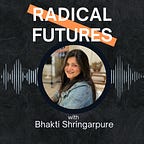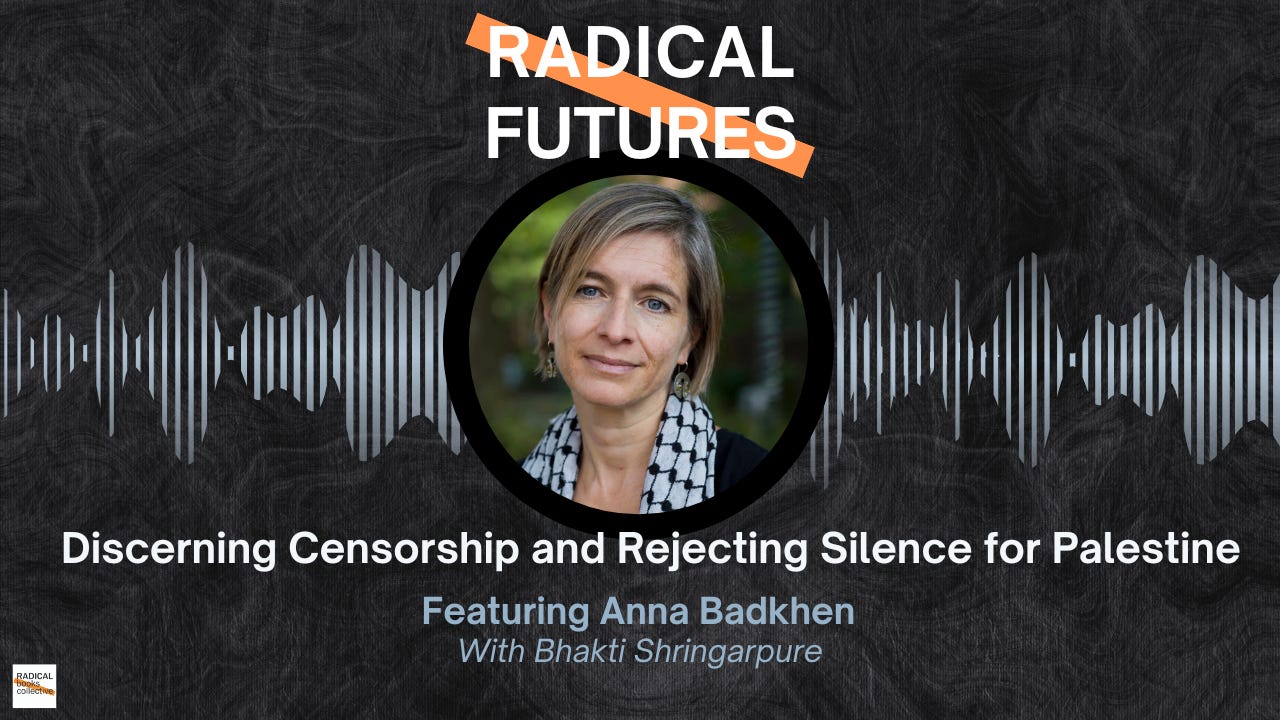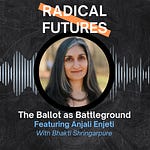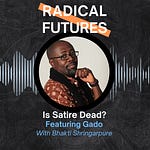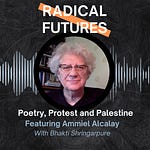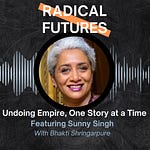If you’re being censored or policed, “you learn to recognize the signals your body sends you,” writer Anna Badkhen explains. A few months ago, Anna had turned down an invitation to participate in PEN America’s World Voices festival to protest their “absolutely despicable treatment” of Palestinian writers and journalists. She articulated the reasons for her boycott in a letter which she posted on social media, and in response, Anna received a missive from PEN America that, to her, sounded very much like a threat. She realized right away that it physically triggered memories from when she was a young journalist working within the totalitarian state structure in Russia.
Censorship did not always mean obviously grisly modes of surveillance and violence, and Anna understood this early on in her career. Her recent article titled “The Pen and the Sword: Censorship Threatens Us All” exposes the ways in which dissenting opinions are censored without any legible arm twisting involved. In publishing and in journalism, the “machine of censorship” does not simply involve strikethrough edits or refusal to publish a particular author or a straight-up ban. It can be much subtler with an editor pushing for certain line edits, tonal changes or asking for the use of different terminology. It can also come in the guise of a conversation where the threat to comply is veiled. It is about making the writer bend to a particular narrative through subtle turns in language and style.
Anna has refused to take off her keffiyeh for the last two years, and says that Palestine has unmasked everything and everybody. She believes that “the literary establishment and all the so-called liberal intelligentsia in the United States and in the West overall” can be placed in three categories today: “Groups that are genocide deniers, groups that are unable to stand by in silence, and then a group that is racist enough to be okay with not saying anything.”
For Anna who is a writer with 7 books to her name and over 30 years of experience in writing about war, it is the third group, the silent ones, that are deeply disconcerting. Their silence is not only a sign of complicity but of a more troubling type of self-censorship. Even if any individual writer or journalist or academic has everything to lose from speaking out about Palestine, Anna insists that we should all be cultivating a “moral sense of proportion.” After all, it is not her home that is being “firebombed” but it is the Palestinians that are living with extraordinary levels of savagery wreaked upon them for over 600 days.
Yet another mode of stealthy censorship that Anna exposes is the kind of journalism practiced by the New York Times who have succeeded in creating and sustaining a caste of people who are “Progressive Except for Palestine.” This PEP group has fomented deep divisions in the US and Anna believes that the New York Times must be taken to court “the way that Radio Mille Collines went on trial after Rwanda.” Justice could come sooner, however. Resistance would require journalists to walk out of newsrooms right now yet the structures of dehumanization are so deeply embedded within the very people who claim to do the work of truth-telling. This dehumanization has become the norm because we are currently living in “a world order facilitated by the absolute failure of love.”
As we contend with gloomy, existential questions about a world gone awry with hatred and violence, Anna insists on snapping out of it to speculate upon radical futures for our planet. She evokes James Baldwin’s beautiful line about how love has never been a popular movement: “The world is held together, really it is held together, by the love and the passion of a very few people,” Baldwin said. Anna builds on Baldwin to remind us that “love is an active verb” and that love has “to be practiced, to be maintained.” It is simple. Rising out from the spiral of hatred and from the ashes of violence can only happen if we “cultivate love.”
What is the role of writer in a time of genocide, I ask? Her reply comes through a poem by Zbigniew Herbert who wrote that “you were saved not in order to live, you have little time, you must give testimony.” For Anna, this translates into an “obligation to remember to speak with humility” and “an obligation to remember the difference between professional risks and the daily life and death of the people to whom we owe witness.”
Further reading:
-”The Pen and the Sword: Censorship Threatens Us All” by Anna Badkhen, The Markaz Review https://themarkaz.org/the-pen-and-the-sword-censorship-threatens-us-all/
-For all the writing by Anna Badkhen: https://www.annabadkhen.com/
Hosted by Bhakti Shringarpure.
Radical Futures is produced by Warscapes
Title Music: "Cottonstorm" by Bayern Boom Beat
Subscribe | Follow www.radicalbookscollective.com


